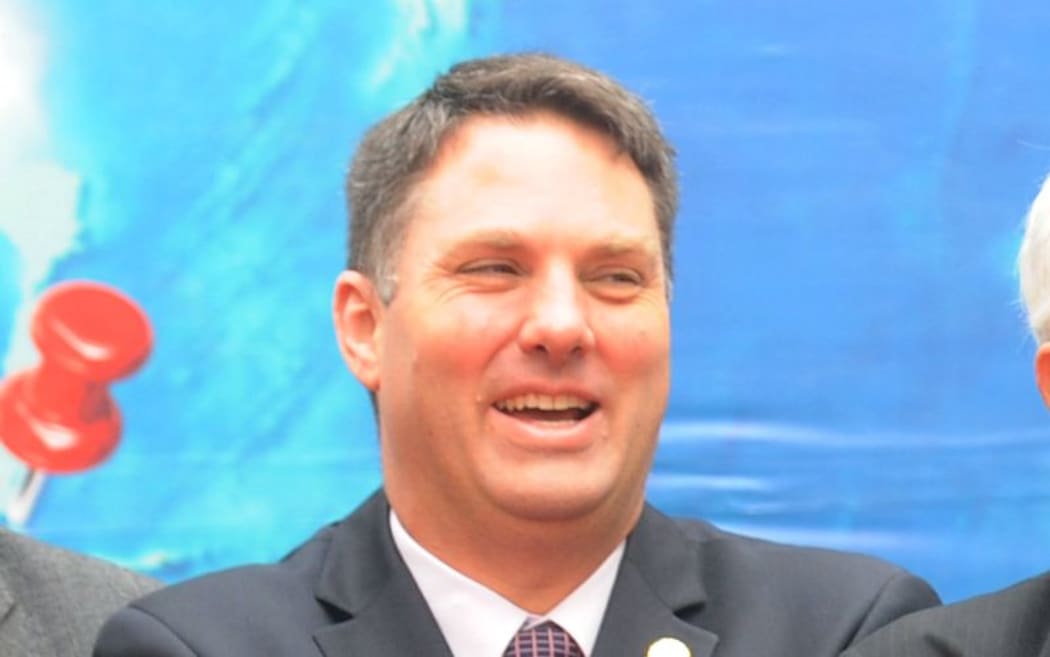Australia's shadow minister of defence says the country needs to make the Pacific Islands a core concern of its foreign policy or lose ground to others.
Richard Marles delivered the call in a widely circulated speech at Australia's Lowy Institute, arguing that Canberra can engage far more strategically as a meaningful partner in the region.

An Australian soldier with the Regional Assistance Mission to Solomon Islands meets locals. Photo: Gary Ramage/Commonwealth of Australia
He said that while admirable, Australia's reluctance to be an "overbearing colonial power" is holding it back from effective engagement with Pacific countries.
"I think there is a huge desire within the Pacific to see Australia lead and to play its part," said the former Parliamentary Secretary for Pacific Island Affairs.
Australia is already the Pacific's largest aid provider, but according to Mr Marles it could do more, such as enhancing defence co-operation with island states, particularly Papua New Guinea.
"You know, the Pacific have choices, and we can't take for granted that we will be the partner of choice forever. The country that cares the most will be the country that has the most influence within the Pacific," he claimed.
"It's really important that Australia makes it clear that we are that country. And it really does mean that the Pacific needs to be elevated to being a mainstream part of Australia's world view."
Anxiety about ceding influence in the islands region to China is not new in the corridors of Canberra. However Australia's aid programme remains the largest in the Pacific. But for Richard Marles, despite the signficant resources at Canberra's dispoal, there is a danger in sticking to a holding pattern.
"We need to differentiate ourselves by making sure that we are of the region, that we see the region's future development as completely connected to our own security and our own national interests, which it absolutely is. So this is not in a sense external help provided, this is a country who is next door, who is part of the region, wanting to play its part."

Australian opposition Labour Party immigration spokesman, Richard Marles Photo: AFP
Australia's relationship with the Pacific, Mr Marles claimed, was as important as its relationships with the US or China. He said it was also important for the Pacific that Australia demonstrated that it cared.
The Australian opposition MP also suggested there was significant room to encourage more discussion with Pacific Island countries "about how they see the future as well".
Yet Mr Marles disagreed with the suggestion that Canberra had lost leverage in the region due to its controversial arrangements for offshore processing of refugees on Manus Island and Nauru. However, he was was critical of the way that the current Australian government has handled its relationship with PNG in respect to Manus.
"But I don't think at the end of the day it has a determining impact on the role Australia can play within the Pacific, and indeed the kind of role that the countries in the Pacific would like Australia to play," said Mr Marles.

Australia has faced criticism into its treatment of asylum-seekers on remote Pacific islands amid allegations emerged of abuse against refugees. Photo: Matthew Abbott / GETUP / AFP
The Labor MP said Australia should take a leaf out of New Zealand's book. According to him, New Zealand's role in the Pacific is central to its own identity and is well received by the island states.
"You see the way in which New Zealand feels deeply rooted within the Pacific. We do actually have a way to go, and it's important that we do that, because we are," he explained.
"This is the part of the world in which we belong and which we are part of. This is the part of the world where both those within it expect to see us leading, and those without it expect to see us leading."

